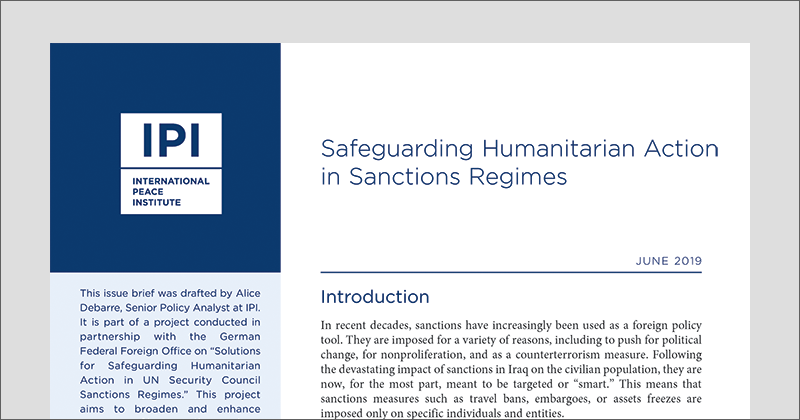
There are currently fourteen UN sanctions regimes, which member states are legally required to implement. Many of these are implemented in the context of armed conflict, where international humanitarian law outlines obligations to protect the provision of and access to principled humanitarian action. But despite efforts to make sanctions regimes more targeted, they continue to have unintended consequences, including impeding or preventing the provision of humanitarian assistance and protection—particularly when they coexist with counterterrorism measures.
This issue brief explains the various ways in which sanctions regimes can impact humanitarian action. Acknowledging that this is not a new issue—though one that may be of increasing concern—it identifies several factors that make it challenging to resolve. Finally, it lays out some avenues for progress, pointing to existing efforts and highlighting where more could be done.
Given that sanctions regimes are mostly targeted and that member states are bound to uphold the principles in the UN Charter and international humanitarian law (where it applies), sanctions should protect and not inhibit humanitarian action. Where sanctions hinder aid, the impact on civilian populations is immediate, and efforts to backtrack will always come too late. Going forward, member states, the UN, financial institutions, and humanitarian actors should proactively and preventively tackle this problem. While the most effective courses of action will require political will, stakeholders at all levels can take incremental steps to help mitigate the impact.







